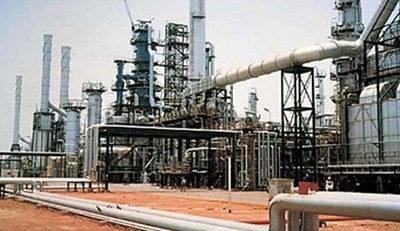Stakeholders in the oil and gas industry have said that incentives for private refineries in the country will go a long way to boosting Nigeria’s economy.
The stakeholders made this assertion during a public hearing, on a bill to provide for the licensing, regulation and incentives for petroleum refineries in Nigeria on Tuesday in Abuja.
The stakeholders at the hearing organised by the House of Representatives Committee on Petroleum Resources (Downstream), said they were in total support of any legislation that would liberalise the industry.
In their position, the Independent Petroleum Marketers Association of Nigeria (IPMAN), through their legal adviser, Mr Modu Shettima, said their support for the incentives for private refineries was to encourage local investment.
He said that the measure would also ensure fair competition and encourage participation of Nigerians in ownership, control and management in the industry.
Shettima explained that their resolve to support the Act was to attract direct foreign investment, boost general employment for youths, checkmate capital flight and make petroleum products available in the country.
Mr Reuben Umoh, representing the Petroleum Training Institute (PTI), said government should put measures to guard against abandonment of refineries by those issued with the license.
He explained that structured industrial management plan should be evolved to create synergy platform of cooperation in shared experience.
“As part of the incentives, such refineries should be exempted from value added tax (VAT) as well as import and export duties for a specified period,” he said.
Umoh solicited for the provision of tax and levies for a period not more than 10 years, while appropriate price regulatory agencies should be empowered to determine prices.
He suggested that there should be provision for adequate Corporate Social Responsibility (CSR) to host communities in order to maintain industrial harmony.
Umoh said that Nigerians should constitute a minimum of 70 per cent of the employees of the refineries in accordance with the Act.
Declaring the hearing open, Speaker Yakubu Dogara, who was represented by the Chief Whip, Rep. Ado Doguwa (APC-Kano), said that the bill was part of the ongoing reform in the oil and gas industry.
The speaker added that the bill was expected to increase efficiency, address perennial shortages of supply and curb corruption.
Dogara said that the level of production and utilisation of bitumen in Nigeria needed a boost to broaden the economic opportunities of the country.
The speaker said that it would also prevent wastage of foreign exchange on the importation of the product. (NAN)

